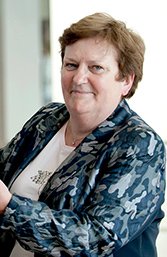A recent statement from the Medical Council warned doctors of possible sanction if they over-prescribed certain medications. Catherine Reilly reports
Last month, the Medical Council issued a press statement warning doctors to “reduce over-prescribing of benzodiazepines, z-drugs and pregabalin or face potential investigation”.
The Council statement did not specify a rise in complaints around prescribing of these medications. However, it is clear there is ongoing misuse of prescription drugs with addictive potential, such as benzodiazepines and pregabalin (Lyrica), an anti-epileptic licensed for a number of indications including generalised anxiety disorder.
In July, the Department of Health referred to “worrying trends on the issue of benzodiazepine medicine”. It said figures in the National Healthcare Quality Reporting System annual report “for the first time show usage in people over 65 years is high as compared to internationally reported averages”.
Methadone and diazepam were the most common prescription drugs implicated in drug-related deaths in 2016, but newer prescription drugs were emerging in the figures, according to the Health Research Board (HRB) National Drug-Related Deaths Index. Pregabalin was implicated in 14 deaths in 2013, but this had risen to 65 deaths in 2016.
‘Important debate’
While last month’s Council statement was aimed at “all doctors”, it directly referenced GPs in acknowledging the “difficulties some practices are experiencing in terms of benzodiazepine and z-drug usage”.
The IMO (which represents all specialty groups) responded by stating GPs were “acutely aware of the dangers and difficulties in prescribing benzodiazepines and other sedatives”.
IMO President Dr Padraig McGarry commented: “GPs have to navigate an often difficult path between what a patient needs and what that patient may believe they need and this can lead to tension in the relationship between GPs and patients when a GP is not willing to prescribe these drugs.”
Dr McGarry described the Council’s statement as welcome and predicted it would generate an “important debate” on the issue.
While in complete agreement about the need for judicious prescribing, Cork city GP Dr Nick Flynn considered the Council’s statement as “unhelpful”.
“Of course, benzodiazepine prescribing should be for the short-term. I am really anti-benzodiazepine prescribing, but I am also anti- that statement and how unsupportive it was to doctors,” he told the Medical Independent (MI).
“In my own practice, where do benzo scripts come from? They come from psychiatry, they come from rheumatology, they come from pain clinics, they come from A&E, and they come from general practice,” noted Dr Flynn.
Some GPs would have taken over practices from colleagues who may have had a long history of prescribing benzodiazepines, dating prior to the availability of selective serotonin reuptake inhibitors (SSRIs), noted Dr Flynn. He said this took much time and effort to sort out, which was not resourced.
Dr Flynn urged the Council to reflect on the lack of public health campaigns on the dangers of prescription medications with addictive potential. “You have got this drugs.ie website and there’s a bit on that, but there’s no real mainstream stuff; there is no public health campaign targeted at adults that tells them the dangers of benzodiazepines.”
He also drew attention to the long waits for access to therapies and counselling faced by public patients.
Dr Flynn posited that the Council statement was likely aimed at doctors whose prescribing was “off the radar”, but the target audience was not completely clear.
Online
Dr Patrick Troy, a GP who works in addiction services, pointed out that many prescription medications can now be illegally procured online.
He believes GPs had tightened-up considerably on prescribing drugs such as benzodiazepines in recent years.
But he had not seen an improvement in such prescribing by junior doctors within the hospital setting.
“No, I haven’t. I truly haven’t. I actually feel junior doctors are in some way isolated from the concept of addiction. I often see patients discharged from hospital and they’d be discharged with copious amount of codeine products. A junior doctor might be familiar with one particular type of analgesia and will prescribe it to all patients … unfortunately, some of these, particularly the codeine products, can be very, very strong.”
“We have seen quite a good bit [of pregabalin abuse],” he added. “It is very, very hard to get people off of it, they will just simply refuse to take a lower dose, or else they will actually get it on the street or perhaps get it on the internet, but I am not really sure about that.”
Dr Ide Delargy, Director of the ICGP Substance Misuse Programme, considered that most GPs were complying with best practice guidelines in relation to benzodiazepines.
“But there would be a small subset who would fall outside those recommendations,” she told MI.

“Every GP throughout the country will have patients who are prescribed these medications. We know they are vital medications at certain times. We also know that people who have been on these medications for a long time can often struggle to get off them. It’s a difficult struggle for GPs and patients to work through what is called de-prescribing of these medications.”
She considered the Council’s statement as mandating doctors to review their benzodiazepine prescribing.
Nevertheless, Dr Delargy also referred to limitations in the range and availability of psychological supports for people addicted to benzodiazepines. “That was one of the recommendations that the Medical Council stated – that patients [dependent on benzodiazepines] should be referred to HSE addiction services. That is good in theory and correct, but we already know those resources are pretty stretched.”
Dr Delargy strongly recommended that all doctors ensure they are familiar with guidance on appropriate prescribing of benzodiazepines and z-drugs in the treatment of anxiety and insomnia. The HSE’s medicines management programme’s guidance document is available on the Executive’s website.
Caution
Dr John Hillery, President of the College of Psychiatrists of Ireland, said it had published a consensus statement on the use of benzodiazepines in specialist mental health services.
“We have our guidelines and all our trainees would be supervised along those lines …We tend to try and avoid prescribing benzodiazepines if we can, but it is not always possible to do so.”
Dr Hillery said it was important to be cautious of any new psychotropic medication coming on stream.
“Whatever the in-depth research that has gone into them, we still need to see them in practice for many years to know what the downside of them is,” he noted.
Overall, he believed the Council statement was a welcome reminder to the profession.
“I don’t know as professionals if we need to be threatened with sanction for our prescribing habits,” he added. “We should all be thinking of our prescribing in a thorough way so we are able to stand over it if we are questioned, and the person who should be asking us to stand over it is the patient we are seeing.”
“So I don’t think we should have to worry about the Medical Council because we should be doing that on a personal basis anyway. It does make good headlines though … and as former President of the Medical Council I know how things take off with these headlines.
“It is good that the Medical Council are reminding people about these medications – I think it might be even more beneficial that they are reminding members of the public, so that they are not putting pressure on doctors to prescribe them, but as I say, I think individual practitioners are self-regulating in this manner.”
According to Medical Council President Dr Rita Doyle, who spoke to MI at the launch of the Medical Workforce Intelligence Report on 2 October, the regulator was not suggesting that GPs in particular had poor prescribing practices in this area.
Dr Doyle said a small number of doctors would have poor prescribing practice in regards to benzodiazepines and similar drugs. Nevertheless, she said a significant amount of total complaints received by the Council related to poor prescribing, particularly involving controlled drugs.

“One of the reasons we made the statement is to support doctors to say, ‘look, the Medical Council says I can’t be doing this’ – that it is alright to say no and we will support them in saying no.”
A key aim was to deter doctors from initiating benzodiazepines when possible, said Dr Doyle, who added that “the last thing” the Council wanted was for a patient’s medication to be suddenly withdrawn and cause them to become ill.
Dr Doyle said the HSE provides doctors with their prescribing data on benzodiazepines and z-drugs (pregabalin is not yet included) and this bell curve analysis shows doctors how their prescribing compares to the average.
“The HSE has that data, they will now share that data with us if they are not getting any response from the doctors. To date, all they did was write to the doctor and say, ‘your prescribing is above the average, there are certain support systems available’, but if the doctor didn’t avail of that, there was nothing further they could do about it.”
The High Court had recently temporarily prohibited a doctor from prescribing benzodiazepines following a process initiated by the Medical Council, she stated.
“That is the hammer, we don’t want to start with a hammer, we want to support doctors to help them say no. But if poor prescribers do not engage with us or with the services [available] and don’t make any efforts, then we can proceed to a Medical Council process and fitness to practise process …”












Leave a Reply
You must be logged in to post a comment.